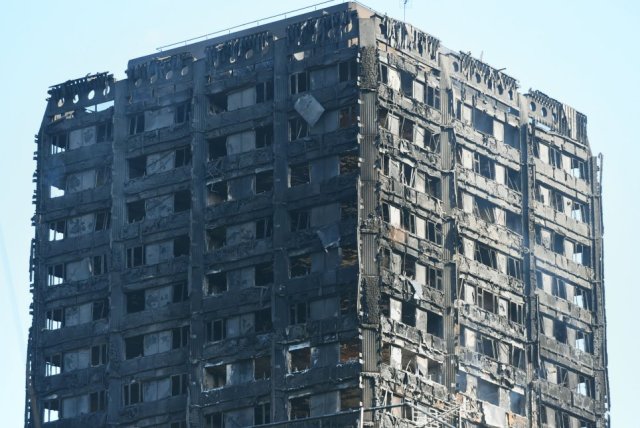It is recommended for wall cladding among other uses. The company produces three grades of the material with increasing degrees of fire-resistance.
1996 Kensington and Chelsea council devolves control of its social residential properties to a tenant management organisation (TMO). Although ultimate responsibility remains with the council and two councillors are at all times on the TMO board, it is claimed that the organisation will be "tenant-led"
1999: a fire started on the fifth floor of Garnock Court, a 14-storey residential block at Irvine in Ayrshire. One person dies. The building had been refurbished with new uPVC windows and polyester sheet cladding.
2000 a parliamentary inquiry into the Garnock Court fire reports. It does not condemn retro-fitting of wall cladding, but recommends improved fire testing procedures
2003 The Building (Scotland) Act passed.
2004 Building (Scotland) Regulations made under the 2003 Act which come into force on 1 May 2005. They contain the mandatory regulation: "Every building must be designed and constructed in such a way that in the event of an outbreak of fire within the building, or from an external source, the spread of fire on the external walls of the building is inhibited." There is no corresponding action in Westminster.
2006 Fire safety law in England changes in October 2006 with the introduction of the Regulatory Reform (Fire Safety) Order 2005.
2006 Audit Commission team gives Kensington & Chelsea TMO a three-star rating. Leader of AC team later joins the TMO and eventually becomes its deputy chief executive
2007; and
2008: tenant members of the Kensington & Chelsea TMO call unsuccessfully for extraordinary meetings to discuss fears over safety, financial malpractice and maintenance.
2009 A fire rages through Lakanal House, a 14-storey block built in 1958 in Camberwell, south-east London. Six people were killed, among them two children and a baby, when a fire caused by a faulty television in a ninth-floor home guts the building. The council is investigated over possible corporate manslaughter charges, but eventually is fined £570,000 under fire safety laws. No further action is taken.
2010 Tenants Services Agency abolished by coalition government with a view to cutting costs while giving increased power to tenants of social housing.
2013 Grenfell Action Group starts raising fire safety fears, with particular regard to emergency service access to the flats tower.
In July a power surge in the tower kills a large number of electrical appliances. The TMO does not respond to concerns.
2014 GAG asserts that Grenfell Tower is a fire trap.
2015 Welsh government mandates sprinklers in new builds and change of use of houses and flats, care homes, rooms for residential purposes (other than in a hotel, hospital, prison or short stay leisure hostel), registered group homes and sheltered housing, as from the following January. There is no corresponding action in Westminster and builders protest at needless extra cost.
2016 Alcoa changes its trading name to Arconic
2016 Conservative Business Secretary unveils measures that will help deliver the government’s commitment to cut a further £10 billion of red tape.
2017

There is more at https://grenfellactiongroup.wordpress.com/2017/06/29/grenfell-tower-the-truth-will-out/ and http://www.private-eye.co.uk/issue-1447/news
No comments:
Post a Comment